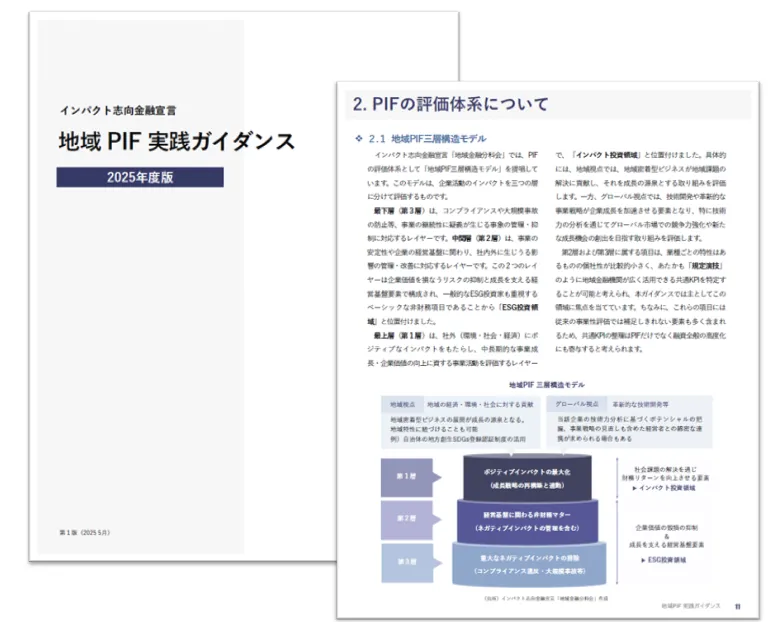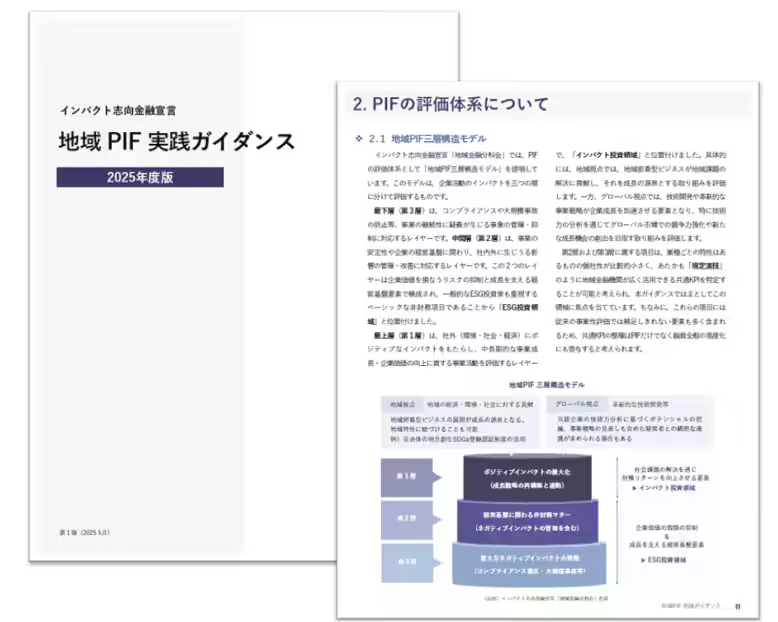

New Practical Guidance for Positive Impact Finance Released for Local Financial Institutions
New Practical Guidance for Positive Impact Finance
Recent discussions within the working group for impact-oriented finance have led to the release of the "Local Positive Impact Finance (PIF) Practical Guidance." This initiative aims to assist local financial institutions in effectively adopting Positive Impact Finance practices. By collaborating voluntarily under the impact-oriented finance declaration, these institutions can explore better strategies for creating positive impacts in the community.
The guidance focuses on a systematic approach to analyze over 1,600 PIF cases executed by local financial institutions for small businesses nationwide. One essential goal is to establish a common set of Key Performance Indicators (KPIs) that ensures a consistent level of quality while promoting PIF, ultimately leading to more effective impact creation.
Understanding Positive Impact Finance
PIF is designed following the principles set out by the United Nations Environment Programme Finance Initiative (UNEP FI). The methodology revolves around understanding the impacts businesses have on society and the environment, aiming to maximize positive effects while minimizing negative ones. In Japan, following its first transaction in March 2019, PIF initiatives have rapidly expanded, especially among local financial institutions. As of March 2025, around 1,600 cases of PIF have been executed, demonstrating its growing significance in the financial landscape of Japan.
Structure of the Practical Guidance
The guidance introduces a three-tier model for evaluating PIF, including:
1. Elimination of serious negative impacts, such as compliance breaches or significant accidents.
2. Management of negative impacts, encompassing non-financial matters related to the management base.
3. Creation of positive impacts as part of a growth strategy.
This layered approach clearly maps out the positive impacts that companies should create and the negative impacts they need to manage, thereby facilitating proactive dialogues with borrowing companies.
Development of Common KPIs
In formulating the common KPIs, the guidance analyzed 60 PIF cases across various industries, identifying frequently occurring KPIs and categorizing them according to UNEP FI's classification. It highlights specific common KPIs across eight prominent sectors:
1. Wholesale and retail
2. Manufacturing (excluding food processing)
3. Food processing manufacturing
4. Construction
5. Transport
6. Waste management
7. Healthcare and welfare
8. Real estate
Additionally, it contrasts the common KPIs with key themes identified by UNEP FI's Impact Analysis Tool to address potential divergences and avoid a phenomenon known as "Galapagos syndrome," where local frameworks diverge from international standards.
A Collaborative Effort
The guidance is the fruit of a year and a half of discussions among the subcommittee, which established a task force composed of practical members from local financial institutions and evaluation organizations post-January 2025. A draft was created with input gathered from the impact-oriented finance declaration, leading to the public release of the guidance. Future revisions will be made as necessary to keep the guidance up to date.
About the Impact-oriented Finance Declaration and the Local Financial Subcommittee
The impact-oriented finance declaration was established in November 2021 by 21 financial institutions aimed at transforming the flow of funds towards impact-oriented avenues to autonomously address environmental and social issues. With participants across diverse asset classes, as of May 2025, the initiative has expanded to 71 signatory organizations, divided into six subcommittees. The local financial subcommittee specifically focuses on enhancing the creation of impact in regional problem-solving through expanded local impact finance efforts.
Leadership and Collaborative Members
The local financial subcommittee is co-chaired by:
- - Tsukasa Kanai, Fellow Executive at Sumitomo Mitsui Trust Group
- - Takashi Yamazaki, Corporate Finance Group Manager at Shizuoka Bank
- - Hyun Cheol Jung, Corporate Finance Group Manager at Shizuoka Bank (as of April 2025)
Key discussion members include representatives from various financial institutions and research organizations, emphasizing a broad range of expertise and perspectives.
For inquiries related to this release, please contact:
- - Impact-oriented Finance Declaration: Yuka Ogasawara, Deputy Secretary General
- - Phone: 080-7003-6482
- - Email: [email protected]

Topics Financial Services & Investing)










【About Using Articles】
You can freely use the title and article content by linking to the page where the article is posted.
※ Images cannot be used.
【About Links】
Links are free to use.